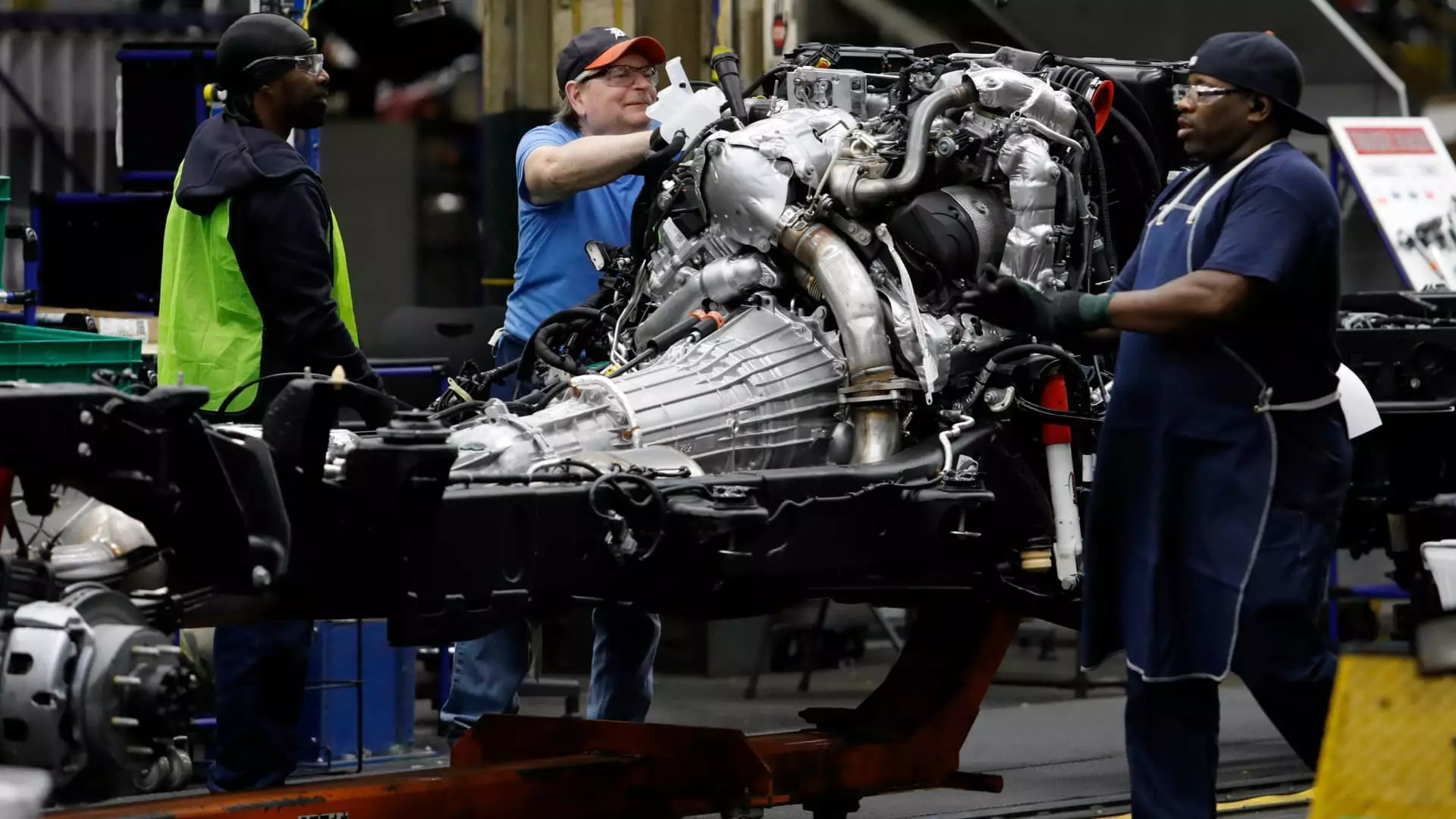In a noteworthy development that underscores the vulnerability of the automotive sector to external disruptions, General Motors (GM) has temporarily ceased operations at two of its key manufacturing plants located in the United States. The abrupt halt in production is primarily attributed to unforeseen supply chain impacts triggered by Hurricane Helene. This scenario serves as a vivid reminder of how natural disasters can have far-reaching implications on production schedules, particularly for large automakers heavily reliant on intricate supply chains.
The affected facilities include GM’s Flint plant in Michigan, renowned for its production of heavy-duty trucks, and the Arlington Assembly in Texas, which is responsible for a range of full-size SUVs, including prominent models like the Chevrolet Tahoe and Cadillac Escalade. By canceling shifts on Thursday and Friday, GM has taken a precautionary approach to ensure the safety of workers and the integrity of its operations amidst the chaos created by the hurricane.
Supply Chain Resilience and Recovery Strategies
As GM navigates through the aftermath of Hurricane Helene, the company is actively working with its suppliers to facilitate a swift recovery. The organization’s spokesperson noted that production at the Arlington facility is anticipated to resume by Monday, reflecting a determination to minimize disruptions for both employees and the broader community. This proactive stance exemplifies a strategic approach to managing supply chain vulnerabilities.
The hurricane’s destructive impact, which resulted in significant casualties and remains a pressing concern for many in affected areas, illustrates the critical necessity for manufacturers to develop resilient supply chains. Jeffrey Morrison, GM’s vice president of global purchasing and supply chain, emphasized the disruptions caused not only by the hurricane but also by concurrent challenges such as labor strikes at ports. Following the resolution of these strikes, dockworkers resumed their jobs, signaling a potential return to normalcy in operations.
Lessons Learned from Previous Disruptions
In light of the disruption experienced, GM is leveraging lessons learned during the COVID-19 pandemic to fortify its supply chain management. Morrison noted that the pandemic compelled the automaker to delve deeper into understanding its supply chain dynamics, particularly identifying sub-tiers that had previously been challenging to track. This newfound insight has allowed GM to gain better visibility into its supply chain, thus facilitating more effective communication with suppliers regarding material procurement and potential disruptions.
While GM has not disclosed specific details about the suppliers affected by Hurricane Helene, the automaker’s commitment to assist them underscores a collective responsibility towards recovery in the face of adversity. The integrated approach to supply chain management that GM has adopted positions the company to navigate not only immediate disruptions caused by natural disasters but also the evolving challenges presented by an unpredictable global landscape.
Ultimately, the temporary halt in production at GM’s facilities serves as a crucial case study for the automotive industry and beyond. It highlights the pressing need for manufacturers to enhance their preparedness for unforeseen disruptions—be they natural disasters, labor strikes, or global health crises. As the industry continues to confront these challenges, the lessons learned from managing disruptions will be key in ensuring operational resilience and safeguarding the livelihoods of countless workers.

